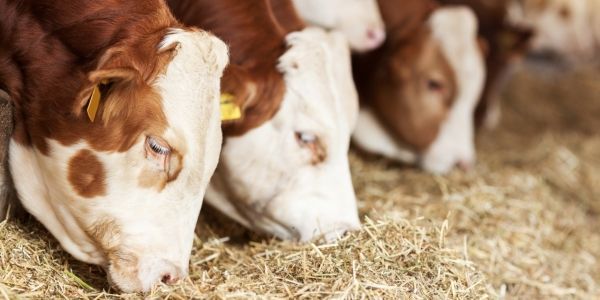A newly discovered series of genes related to feed efficiency could pave the way to making cattle farming cheaper and more sustainable, according to a new study by University of Alberta researchers.
U of A ruminant biologist and microbiologist Le Luo Guan and her research team showed that of the 20,000 genes expressed in bovine rumen, liver, muscle and back fat—key tissues involved in energy metabolism—19 seem to be associated with feed efficiency.
Hui-Zeng Sun, a post-doctoral fellow in Guan’s lab, made the discovery by using functional genomics and computational statistics to shed some light on the mechanics involved in feed efficiency, a complex biological process that remains poorly understood.
“This is laying the groundwork for us to use these genes when doing genomic selection for feed-efficient animals in cattle breeding programs,” said Sun, the study’s lead author.
Continue reading at University of Alberta.
Image via Getty Images.


